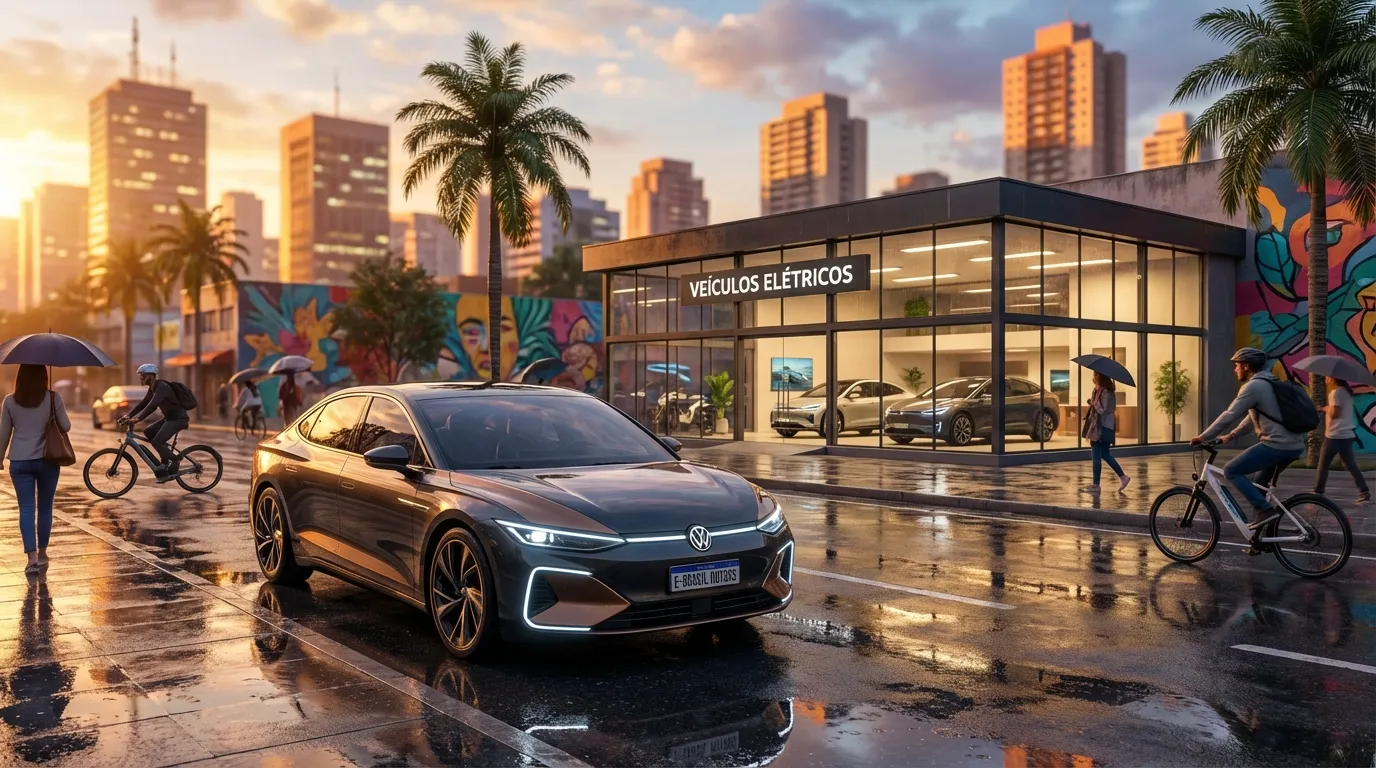Brazil’s mobility landscape is undergoing what, at first glance, seems like a contradictory moment: the latest data points to a collapse in the value of purely electric vehicle imports, with a sharp 56% drop. However, those observing the streets and dealerships perceive the opposite reality, where domestic sales are not only holding steady but breaking historical records month after month. This phenomenon reveals a strategic maturation of the sector, driven by new tariff policies and a shift in consumer preference toward more versatile technologies.

The “Tariff Effect” and the Drop in Imports
According to intelligence data from Logcomex, the imported value of battery electric vehicles (BEVs) has suffered a dramatic retraction. Between January and September 2025, the amount fell from US$ 1.4 billion (recorded in the same period in 2024) to US$ 653.6 million. This reduction, exceeding US$ 740 million, is a direct reflection of the progressive increase in import tariffs for electrified vehicles—a government measure intended to incentivize local production in the US automotive market for Brazil.
With imported models arriving more expensively, the market adjusted quickly. However, it is crucial to note that the drop in the imported value did not signal the end of Brazilian interest. On the contrary, demand has migrated and become more sophisticated. Many consumers, previously hesitant, now understand that the battery replacement rate is nearly zero, debunking the biggest myth about the longevity of these cars, which keeps the adoption curve high, even with adjusted prices.
The Hegemony of Plug-in Hybrids (PHEV)
While purely electric vehicles contended with fiscal barriers at the country’s entry points, plug-in hybrids (PHEVs) have emerged as the big winners of this cycle. Moving US$ 1.8 billion and growing 3% in value, they have taken the lead, accounting for 56% of the total imported value of electrified vehicles. The Brazilian consumer sees the PHEV as the ideal bridge between combustion and electricity, eliminating range anxiety on long journeys across Brazil’s growing road network.
The technology in these vehicles has advanced by leaps and bounds. Today, Chinese and European models offer combined ranges that challenge old logic. A clear example of this evolution is the 1,000 km era that has arrived with the BYD Seal U DM-i and the 2025 PHEV revolution, showing that it is possible to achieve extreme efficiency without relying exclusively on public chargers.
National Production and Infrastructure Expansion
The definitive answer to the balance between falling imports and rising sales lies in nationalization. Giants like BYD, in Camaçari (Bahia), and GWM, in Iracemápolis (São Paulo), have begun operations focused precisely on high-volume plug-in hybrid and electric models, thereby avoiding import tariffs. This creates an environment of fierce competition, where new brands strive to gain market share. We see interesting moves, such as the real threat to BYD with the debut of the Leapmotor A10, which brings fast charging and premium technology to intensify the dispute within the Brazilian EV market.
Concurrently, charging infrastructure has taken a quantum leap, growing from just 350 points in 2020 to over 16,800 by August 2025. This growth in the network of charging stations, combined with the energy efficiency of new engines—some even promising to surpass the efficiency of pure electrics, as when Chery reveals a gasoline engine with 48% efficiency—consolidates Brazil as a relevant player in the global electromobility scene. The market hasn’t shrunk; it has simply started speaking Portuguese.
